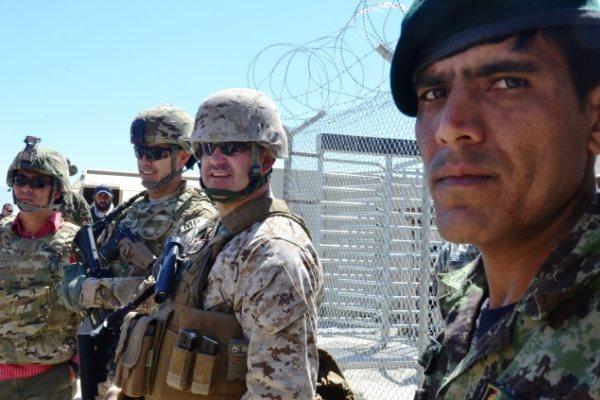The U.S. military transferred or released Wednesday the last three prisoners in U.S. custody in Afghanistan, including two who reportedly had been held previously at CIA "black sites" in Afghanistan named in the Senate's torture report.
The transfer or release of the three detainees -- who were never formally charged with crimes -- from U.S. custody ended the lengthy and controversial role of the military in holding "unlawful enemy combatants" without charges in Afghanistan.
"Effective Dec. 10, 2014, the Defense Department no longer operates nor maintains custody of any detainees," a Pentagon spokesman said in a written statement in response to questions from a reporter. There was no immediate announcement or comment from the International Security Assistance Force in Afghanistan led by Army Gen. John Campbell.
"The government of Afghanistan will be responsible for all detention facilities" when the U.S. combat role ends on Dec. 31 and the training and advisory mission under Operation Resolute Support begins on Jan. 1.
The statement said that "after careful review by the Defense Department and the State Department, U.S. Forces-Afghanistan has transferred the last third-country nationals held in U.S. custody in Afghanistan."
Two of the last three prisoners, identified as Tunisians Lufti al-Arabi Al-Gharisi and Ridha Ahmad Najjar, were transferred to Afghan custody. Both reportedly were detained by the U.S. military in 2002 and were later held at a CIA black site codenamed "Cobalt" before being sent to the U.S. detention facility at Parwan next to the Bagram airfield north of Kabul.
The third prisoner was identified as Taheer Halaf, a Jordanian who is believed to have been held for more than three years. He was released "pending repatriation or resettlement" and was now being assisted by the International Committee of the Red Cross, the Pentagon said.
The status of third-country nationals in U.S. custody in Afghanistan under international law had been a main sticking point in negotiations on a Bilateral Security Agreement to allow for the presence of U.S. and coalition troops in Afghanistan past 2014.
"There is an explicit provision in the Bilateral Security Agreement that states the United States shall not maintain or operate detention facilities in Afghanistan [after Jan. 1]," said a spokesman for Campbell.
Eugene Fidell, who teaches military justice at Yale University, said the closure of the final section of the Parwan detention facility controlled by the U.S. marked the end of a "bad chapter" in the history of U.S. military law.
"When you get into double digits of years of detention (without charges), that's not sustainable, not defensible," Fidell said. Thousands of prisoners were held at Parwan "not only with no charges, but with no judicial oversight," he said.
The U.S. had handed over nominal control of the facility at Parwan to the Kabul government in March 2013 under a sketchy agreement that left scores of detainees in U.S. custody indefinitely.
Thousands of prisoners of Afghan nationality were transferred to Afghanistan's jurisdiction but those deemed Enduring Security Threats, or "ESTs," remained under U.S. control along with "foreign nationals" - Pakistanis, Saudis, Yemenis and others - who had been detained by U.S. forces over the course of the war.
The Kabul government has repeatedly declined to take custody of the foreign nationals, and the impasse was a factor in delaying the Parwan turnover several times.
Since March 2013, U.S. officials with the International Security Assistance Force in Afghanistan and at the Pentagon have acknowledged the presence of ESTs and foreign nationals in the Parwan population without fully commenting on their status or confirming how many of them are being held.
Advocacy groups and published reports had put the number of ESTs between 30-40 and foreign nationals at about 50.
In recent weeks, the U.S. had stepped up efforts to transfer or release the remaining detainees in its custody, with several going to Pakistan last week.
-- Richard Sisk can be reached at Richard.Sisk@military.com

























